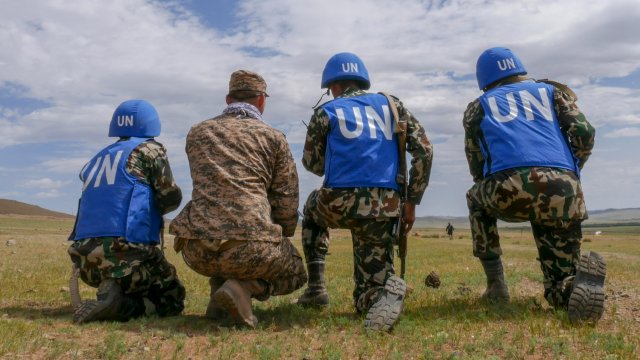
- Politics
PhD Politics
Politics at the University of Surrey is a thriving space for cutting-edge research and advanced training in a wide range of political areas relating to European politics, government and opposition, security and conflict. Our students have the opportunity to work closely with their supervisors and other members of the academic community, in an active research environment.
4,138+ people have created a bespoke digital prospectus
Why choose this
programme?
- We have three well-established research centres bringing together our students, members of staff and visiting researchers:
- We are particularly interested in promoting a lively and active community between doctoral students and members of staff, and we hold regular social events. Here at Surrey, you’ll join a cosmopolitan, multilingual and multicultural community of students and scholars. We consider doctoral students to be junior academics or researchers, and an integral part of the department.
- We belong to TECHNE, an Arts and Humanities Research Council (AHRC)-funded doctoral training partnership, which provides access to comprehensive academic and professional training programmes, as well as the possibility of funding for your studies.
Statistics
100%
Of our politics research graduates are in employment or further education (Graduate Outcomes 2025, HESA)
33rd in the UK
For overall research quality by the Research Excellence Framework (REF) 2021
World-leading research
83% of our politics research is rated as being world-leading or of internationally excellent quality, with 100% of our impact case studies being considered as having outstanding and very considerable impact in terms of their reach and significance (Research Excellence Framework (REF) 2021)
What you will study
Exactly what you'll study will depend on the topic of your PhD. We can supervise a wide range of areas relating to European politics, government and opposition, security and conflict – please see the Research areas tab for a full list.
During your first year you will undertake two modules in quantitative and qualitative research methods. You will also attend a series of seminars providing training and advice on research and professional development, as well as becoming a member of one of our research centres.
Our PhD students undertake research in the following areas:
- Comparative politics
- British politics
- International relations
- EU studies
- Political conflicts and interventions
- Parties and elections
- Public policy
- American politics
- Public opinion
- Area studies.
Development opportunities
We have a package of development opportunities that will boost your research and teaching skills and put you in the best position to secure employment at the end of your course.
Research assistant opportunities
During your PhD, you’ll have the opportunity to work alongside your research supervisor and other members of staff as a paid research assistant. You will be involved in activities such as: conducting literature reviews, helping with data analysis and interpretation for current research projects. You will play an active role in the research community.
Teaching opportunities
During your PhD you will be offered the opportunity to take on a range of paid teaching activities, fully supported by your academic colleagues. These teaching opportunities will further reinforce your personal and academic skills and help to enhance your understanding of your subject area as well as enhancing your CV significantly.
Graduate Certificate of Higher Education
In the first year of your PhD, you will have the opportunity to enrol on the Postgraduate Certificate in Teaching and Learning in Higher Education programme offered at Surrey by our own highly regarded Surrey Institute of Education. You will learn about pedagogy, practise your teaching skills and receive an internationally recognised teaching qualification that will allow you to become a fellow of the Higher Education Academy.
Seminars
During your PhD, you’ll have the opportunity to attend a series of seminars alongside training supported by the Doctoral College.
Assessment
Your final assessment will be based on the presentation of your research in a written thesis, which will be discussed in a viva examination with at least two examiners.
You have the option of preparing your thesis as a monograph (one large volume in chapter form) or in publication format (including chapters written for publication), subject to the approval of your supervisors.
Location
This course is based at Stag Hill campus. Stag Hill is the University's main campus and where the majority of our courses are taught.
Research themes
European politics
- European foreign and security policy
- The role of the EU as an international actor
- European integration theories
- European equality policies and social policy
- Regionalism and area studies
- Area studies
- Environmental policy
- Opposition to the EU.
Government and opposition
- Electoral behaviour
- party politics and patronage
- Campaigns and elections
- Citizens’ impressions of parties and their leaders
- Social movements, opposition and resistance
- Populism and radicalisation
- Social media
- Social, political and gender theories
- Public opinion analysis.
Security and conflict
- Human rights and humanitarianism
- Nuclear non-proliferation
- Security and defence
- Foreign policy analysis
- International intervention
- Foreign policy
- Post-conflict reconstruction and stabilisation.
Discover more about our politics research.
See a full list of all our politics academic staff. If you have any questions about the PhD course, please email politics@surrey.ac.uk.
Research support
The professional development of postgraduate researchers is supported by the Doctoral College, which provides training in essential skills through its Researcher Development Programme of workshops, mentoring and coaching. A dedicated postgraduate careers and employability team will help you prepare for a successful career after the completion of your PhD.
Facilities
We continually invest in improving our research facilities and equipment. Surrey is home to research centres and facilities which promote specialised and interdisciplinary research.


Hadiza Adamu Fika
Student - Politics PhD


Christian Turner
Student - Politics PhD
UK qualifications
Applicants are expected to hold a minimum of an upper second-class (2:1) UK degree and a masters degree with a minimum of a merit from a UK university or overseas equivalent in a relevant discipline.
English language requirements
IELTS Academics: 6.5 or above (or equivalent) with 6.0 in each individual category.
These are the English language qualifications and levels that we can accept.
If you do not currently meet the level required for your programme, we offer intensive pre-sessional English language courses, designed to take you to the level of English ability and skill required for your studies here.
Selection process
Selection is based on applicants:
- Meeting the expected entry requirements and providing all relevant documents including a satisfactory research proposal
- Being shortlisted through the application screening process
- Completing a successful interview
- Providing suitable references.
Fees per year
Explore UKCISA's website for more information if you are unsure whether you are a UK or overseas student. View the list of fees for all postgraduate research courses.
* Please note: any start date other than September will attract a pro-rata fee for that year of entry (75 per cent for January, 50 per cent for April and 25 per cent for July).
July 2026 - Full-time
- UK
- £5,006
- Overseas
- £21,000
July 2026 - Part-time
- UK
- £2,503
- Overseas
- £10,500
October 2026 - Full-time
- UK
- £5,238
- Overseas
- £21,800
October 2026 - Part-time
- UK
- £2,619
- Overseas
- £10,900
January 2027 - Full-time
- UK
- £5,238
- Overseas
- £21,800
January 2027 - Part-time
- UK
- £2,619
- Overseas
- £10,900
April 2027 - Full-time
- UK
- £5,238
- Overseas
- £21,800
April 2027 - Part-time
- UK
- £2,619
- Overseas
- £10,900
- Annual fees will increase by 4% for each year of study, rounded up to the nearest £100 (subject to legal requirements).
Additional costs
There are additional costs that you can expect to incur when studying at Surrey.
Funding
A Postgraduate Doctoral Loan can help with course fees and living costs while you study a postgraduate doctoral course.
Studentships
Browse our frequently updated list of funded studentships open for applications.
How to apply
We actively encourage visiting PhD students from other universities around the world. If you are interested in coming to Surrey as a visiting PhD student you may submit your application via the Doctoral College.
Application process
Applicants should contact potential supervisors before submitting an application via the website. Please refer to section two of our application guidance.
Apply online
To apply online first select the course you'd like to apply for then log in.
Select your course
Choose the course option you wish to apply for.
Sign in
Create an account and sign into our application portal.
The closing date is the last day this month is available for applications, but if you are applying through a studentship you must follow the deadline on the advert to be eligible.
ApplyThe closing date is the last day this month is available for applications, but if you are applying through a studentship you must follow the deadline on the advert to be eligible.
ApplyThe closing date is the last day this month is available for applications, but if you are applying through a studentship you must follow the deadline on the advert to be eligible.
ApplyThe closing date is the last day this month is available for applications, but if you are applying through a studentship you must follow the deadline on the advert to be eligible.
ApplyThe closing date is the last day this month is available for applications, but if you are applying through a studentship you must follow the deadline on the advert to be eligible.
ApplyThe closing date is the last day this month is available for applications, but if you are applying through a studentship you must follow the deadline on the advert to be eligible.
ApplyThe closing date is the last day this month is available for applications, but if you are applying through a studentship you must follow the deadline on the advert to be eligible.
ApplyThe closing date is the last day this month is available for applications, but if you are applying through a studentship you must follow the deadline on the advert to be eligible.
ApplyAfter registration
Students are initially registered for a PhD with probationary status and, subject to satisfactory progress, subsequently confirmed as having PhD status.
About the University of Surrey
Need more information?
Contact our Admissions team or talk to a current University of Surrey student online.
Code of practice for research degrees
Surrey’s postgraduate research code of practice sets out the University's policy and procedural framework relating to research degrees. The code defines a set of standard procedures and specific responsibilities covering the academic supervision, administration and assessment of research degrees for all faculties within the University.
Download the code of practice for postgraduate research admissions (PDF).
Terms and conditions
When you accept an offer to study at the University of Surrey, you are agreeing to follow our policies and procedures, student regulations, and terms and conditions.
We provide these terms and conditions at the offer stage and are shown again at registration. You will be asked to accept these terms and conditions when you accept the offer made to you.
View our generic registration terms and conditions (PDF) for the 2025/26 academic year, as a guide on what to expect.
Disclaimer
This online prospectus has been published in advance of the academic year to which it applies.
Whilst we have done everything possible to ensure this information is accurate, some changes may happen between publishing and the start of the course.
It is important to check this website for any updates before you apply for a course with us. Read our full disclaimer.



